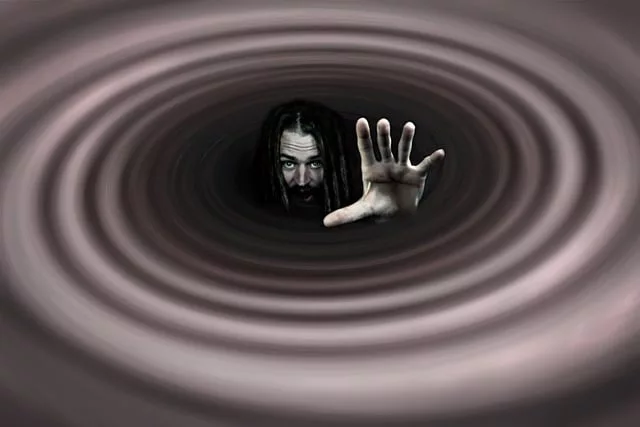Anyone who has ever suffered from a hangover after a night of drinking has experienced a mild form of alcohol withdrawal. Delirium Tremens, on the other hand, is severe alcohol withdrawal that occurs after a quick stop in habitual, heavy drinking.
What Are Delirium Tremens (DTs)?
Often referred to as “the DTs” or “the shakes,” Delirium Tremens is a condition that creates sudden and dangerous changes in a person’s nervous system and brain chemistry.

Here are 7 Facts About Delirium Tremens (DTs):
1. Delirium Tremens Can Be Fatal
Even in this modern medical age, the death rate as a result of DTs is estimated to be between 5 to 15 percent.
Before the introduction of drugs like benzodiazepines, which are used to treat patients going through severe withdrawal, the mortality rate hovered around 35 percent.
Today, effective alcohol detox programs can help patients safely and comfortably manage the withdrawal process much better than years ago.
2. The Condition is Most Common in Heavy Drinkers
The CDC defines heavy drinkers as men who have 15 drinks or more in a one-week period, or women who consume 8 or more drinks in one week.
The National Institutes of Health reports that people who drink 7 to 8 pints of beer, 1 pint of liquor or 4 to 5 pints of wine a day for several months at a time, and abruptly stop drinking, are at risk for severe alcohol withdrawal.
Even drinking lesser amounts of alcohol on a daily basis for a decade or more could qualify a person as a heavy drinker.
3. Long-term Alcoholics are in Danger of Experiencing Delirium Tremens
Because of the damaging effects of alcohol on the body, those who suffer from a lengthy history of alcoholism, such as ten years or more, are most susceptible to this condition.
Long-term alcohol users must be monitored by physicians while detoxing from alcohol.
4. The Symptoms Don’t Always Appear Suddenly
While the intense symptoms of DTs can appear quickly, generally they develop 2 to 3 days after a person’s last drink.
In some cases, though, a longer period of 7 to 10 days passes without symptoms. The fourth and fifth days of detox can sometimes be the most extreme.
5. Hallucinations and Seizures Can Result From Delirium Tremens
People who have experienced alcohol withdrawal more than once are more likely to have seizures between 12 and 48 hours after the onset of DTs.
Another common symptom is formication, which is the feeling or illusion that tiny insects are crawling on the skin or just underneath it.
6. Delirium Tremens Can Bring About Extreme Anxiety
Along with the physical side effects of severe alcohol withdrawal, such as uncontrollable tremors and fever, many patients can become paranoid, confused, or think they are going to die.
It’s important that those undergoing detox do so in a controlled environment monitored by doctors. Sometimes medication can be used to offset anxiety and other symptoms.
7. Illness, Injury or Infection Can Cause Delirium Tremens in Heavy Drinkers
Since DTs are brought about in heavy drinkers after an abrupt stop in their alcohol consumption, any illness, injury or infection that either hospitalizes, or otherwise incapacitates them, can increase the risk of developing symptoms.
It’s important to discuss all alcohol use with a doctor when being treated for any medical condition.
Delirium Tremens Symptoms
Delirium tremens symptoms are severe complications from alcohol withdrawal and usually begin within 2 or 3 days after a person stops drinking. Only a small percentage of people, approximately 5 percent, will experience DTs.
Common Delirium Tremens Symptoms Include:
- Shaking (the Shakes)
- Heavy sweating or shivering
- Hallucinations
- Delusions
- Confusion
- Fever
- High blood pressure
- Irregular heart rate

Delirium Tremens Treatment
Delirium tremens treatment often requires hospitalization to keep the patient safe and closely monitored. Because the condition is very dangerous, the first protocol is on saving the patient’s life and keeping them stable and comfortable.
Treatment for Delirium Tremens can include the following:
- Intravenous fluids to stay hydrated
- Medications to reduce alcohol withdrawal complications such as benzodiazepines (lorazepam)
- Nutritional supplements like thiamine, magnesium, and zinc
- Antipsychotics (haloperidol) to control hallucinations
Seek Professional Help for Alcohol Addiction
After the release of the American Psychiatric Association’s fifth edition of the Diagnostic and Statistical Manual of Mental Disorders (DSM-5), Alcoholism is now clinically referred to as “Alcohol Use Disorder.”
The DSM-5 combined the diagnoses of alcohol dependence and alcohol abuse in its previous edition.
Prolonged alcohol consumption is a very serious and life threatening matter. The mental and physical health risks are severe. The mental and physical health risks of long-term alcohol addiction can be severe.
Physicians certified in addiction medicine must monitor withdrawal from alcohol, especially for heavy drinkers.
Because stopping long-term alcohol use can be dangerous or fatal, it is never advised to quit cold turkey or for anyone to try to detox alone at home without proper supervision.
Once detox has safely been achieved, then patients can begin treatment that will help them find a more fulfilling and sober lifestyle.
Delirium Tremens is one of the most dangerous side effects of long-term or heavy drinking, but effective treatment can provide a safe means of recovery.
Related:
21 Signs of a Drinking Problem
Here’s What to Expect When Giving Up Alcohol





